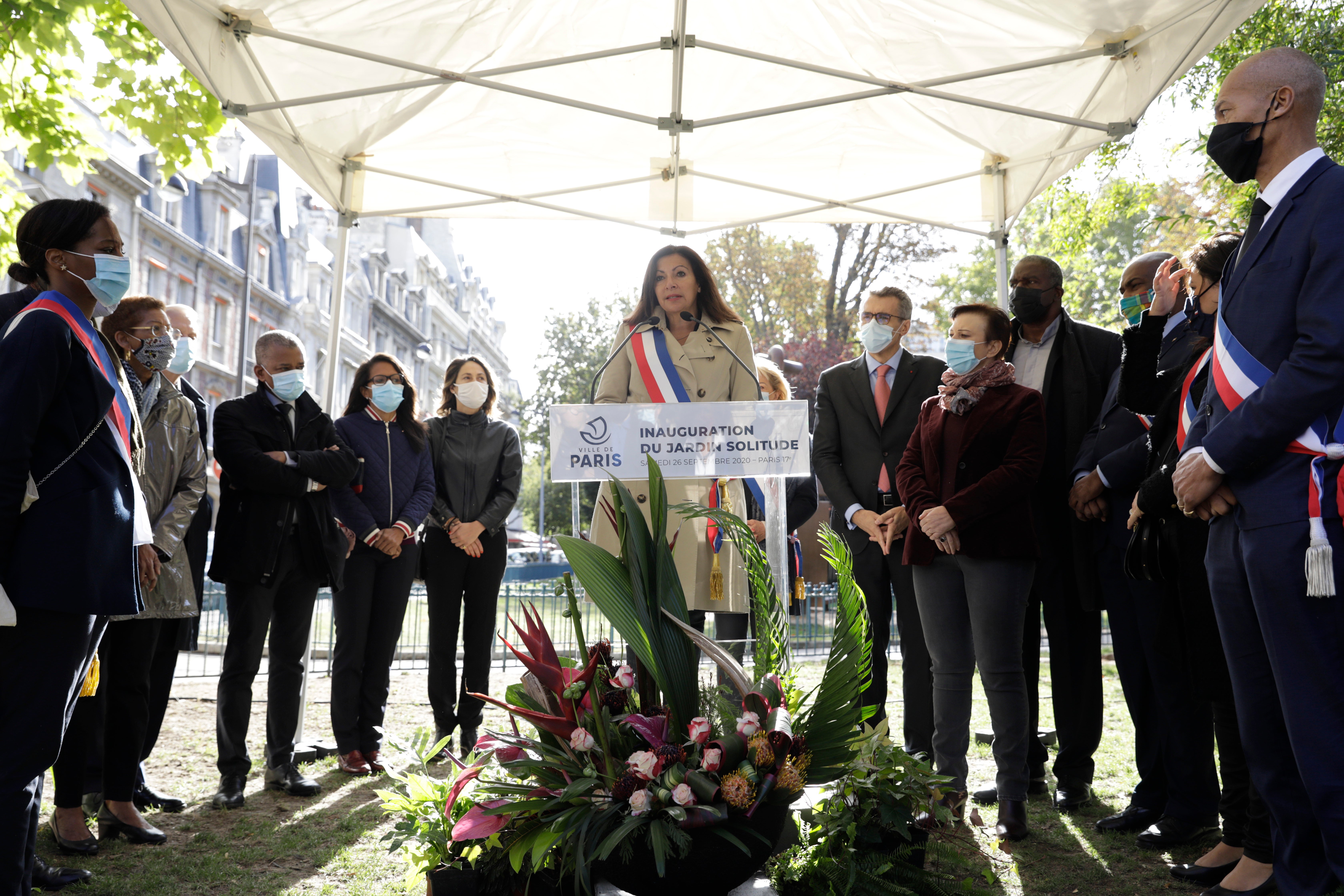Paris names park after Black woman who resisted slavery
The city of Paris has inaugurated a park honoring a woman who fought for the liberation of slaves on the Caribbean island of Guadeloupe

Your support helps us to tell the story
From reproductive rights to climate change to Big Tech, The Independent is on the ground when the story is developing. Whether it's investigating the financials of Elon Musk's pro-Trump PAC or producing our latest documentary, 'The A Word', which shines a light on the American women fighting for reproductive rights, we know how important it is to parse out the facts from the messaging.
At such a critical moment in US history, we need reporters on the ground. Your donation allows us to keep sending journalists to speak to both sides of the story.
The Independent is trusted by Americans across the entire political spectrum. And unlike many other quality news outlets, we choose not to lock Americans out of our reporting and analysis with paywalls. We believe quality journalism should be available to everyone, paid for by those who can afford it.
Your support makes all the difference.The city of Paris inaugurated a public garden Saturday honoring a woman who fought for the liberation of slaves on the Caribbean island of Guadeloupe.
Mayor Anne Hidalgo also announced plans to erect a statue to the woman Solitude, at the site in northeastern Paris. It will be the city’s first statue honoring a Black woman.
Amid global protests against monuments to white men linked to colonialism or the slave trade, French leaders have resisted taking down statues but pushed instead to design new monuments to more diverse, lesser-known historical figures.
Solitude was born around 1772 to an African slave who was raped by a white sailor on the ship bringing her to the Antilles, according to newspaper Le Monde.
She won her freedom after the French Revolution, but then Napoleon reinstated slavery in French colonies and Solitude joined Guadeloupe's resistance movement, according to city hall. Napoleon's forces arrested a then-pregnant Solitude, and sentenced her to death.
She gave birth on Nov. 28, 1802, and was hanged the next day.
France abolished slavery again in 1848. Guadeloupe remains part of France, and saw protests earlier this year against racial injustice in the wake of George Floyd's death in the U.S.